Roman-era wine shop, possibly destroyed in an earthquake, discovered in Greece
A wine shop in Roman-era Greece experienced catastrophe and was abandoned around 1,600 years ago.
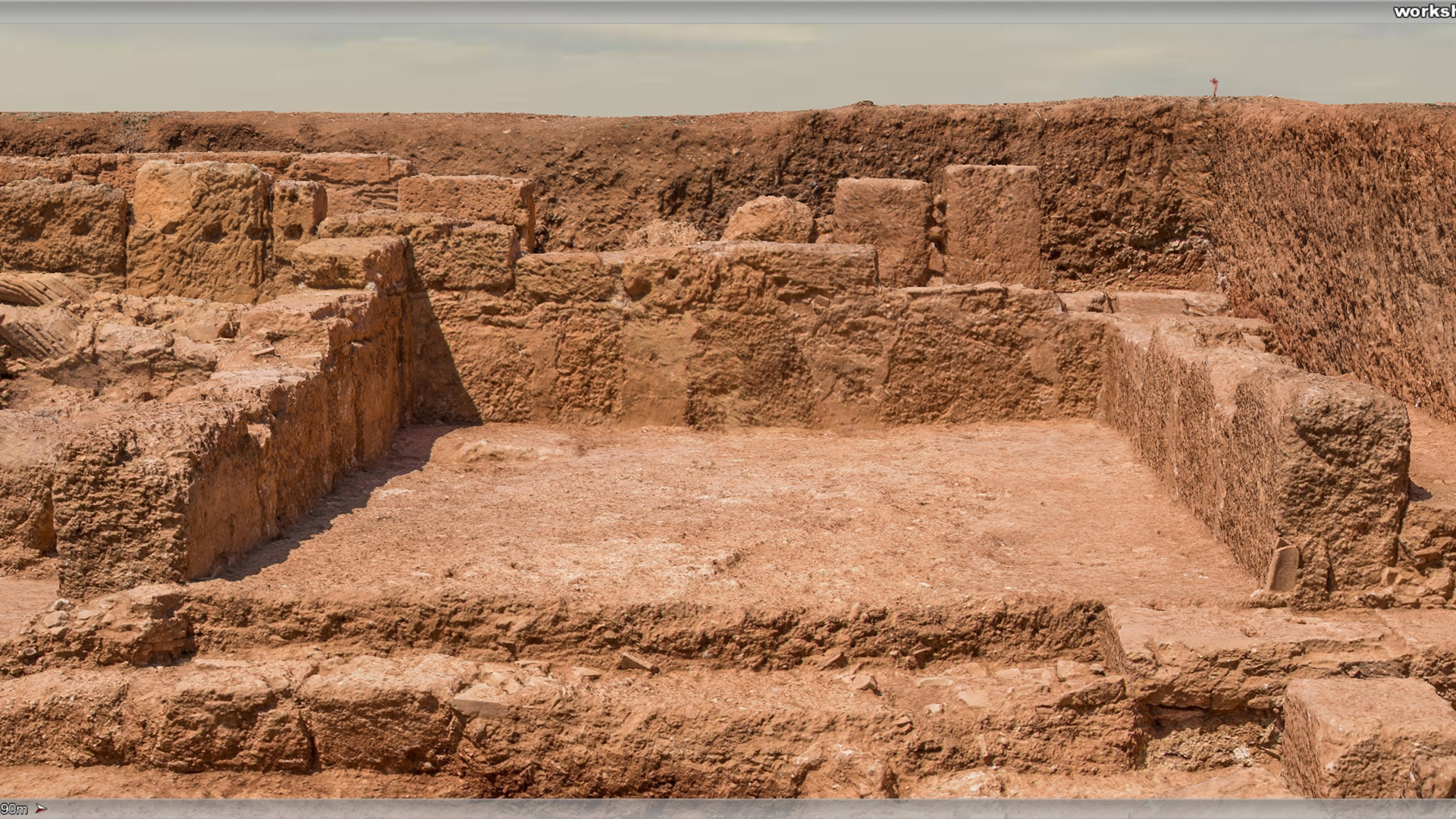
Archaeologists in Greece have discovered a 1,600-year-old wine shop that was destroyed and abandoned after a "sudden event," possibly an earthquake or building collapse, left broken vessels and 60 coins scattered on the floor, according to new research.
The shop operated at a time when the Roman Empire controlled the region. It was found in the ancient city of Sikyon (also spelled Sicyon), which is located on the northern coast of the Peloponnese in southern Greece. Within the wine shop, archaeologists found the scattered coins, as well as the remains of marble tabletops and vessels made of bronze, glass and ceramic.
The wine shop was found on the northern end of a complex that had a series of workshops containing kilns and installations used to press grapes or olives, archaeologists noted in a paper they presented at the annual meeting of the Archaeological Institute of America, which was held Jan. 4-7 in Chicago.
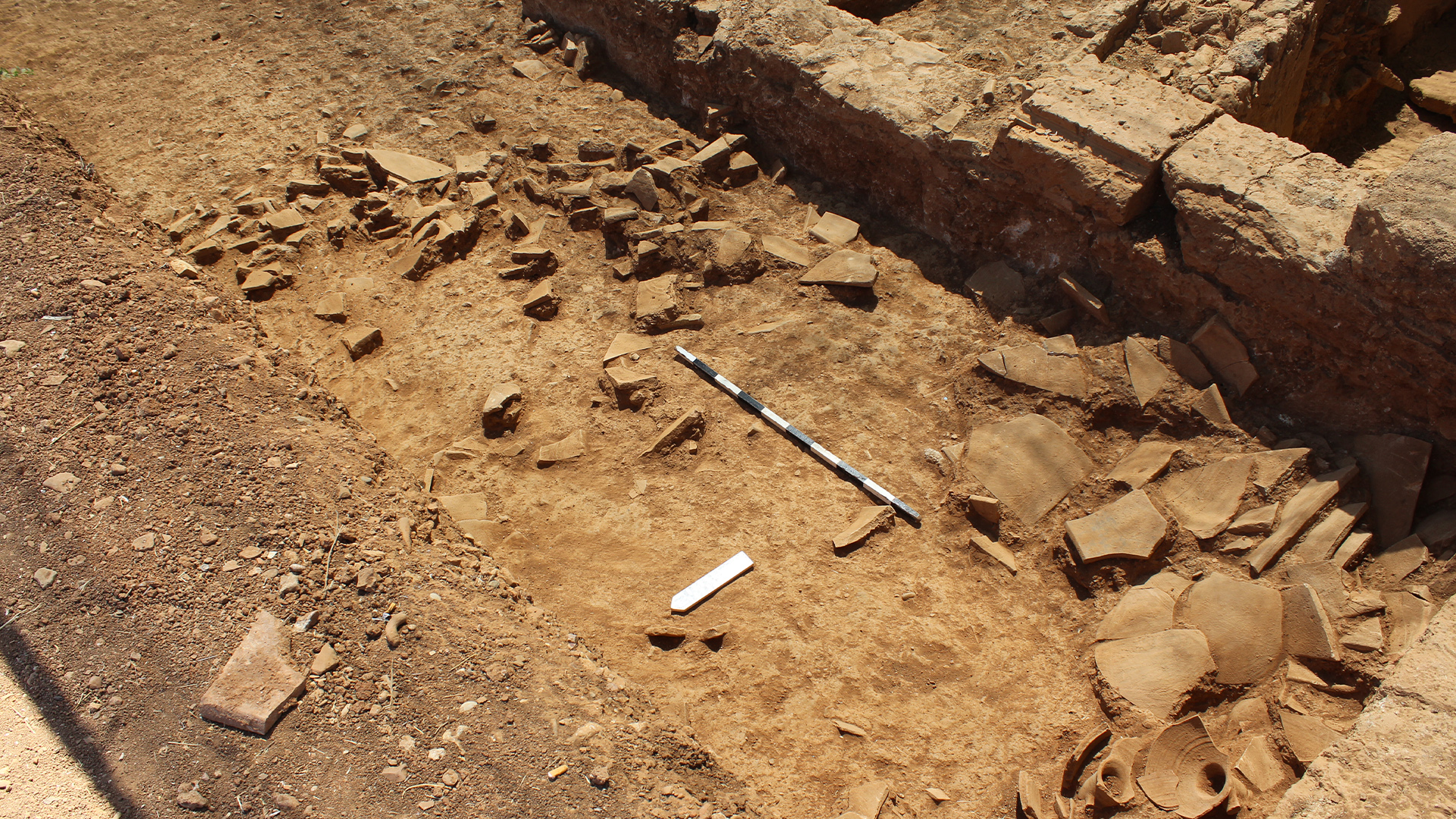
"Unfortunately, we don't have any direct evidence of the types of wine that may have been sold. We have some evidence of grape pips (Vitis vinifera), but we aren't able to say anything more specific than that right now," said Scott Gallimore, an associate professor of archaeology at Wilfrid Laurier University in Canada, who co-wrote the paper with Martin Wells, an associate professor of classics at Austin College in an email.
In addition to wine, other items, such as olive oil, may have been sold in the shop. Most of the coins date to the reign of Constantius II, from 337 to 361, with the latest coin being minted sometime between 355 and 361, Gallimore told Live Science in an email.
Related: 2,700-year-old temple with altar overflowing with jewel-studded offerings unearthed on Greek island
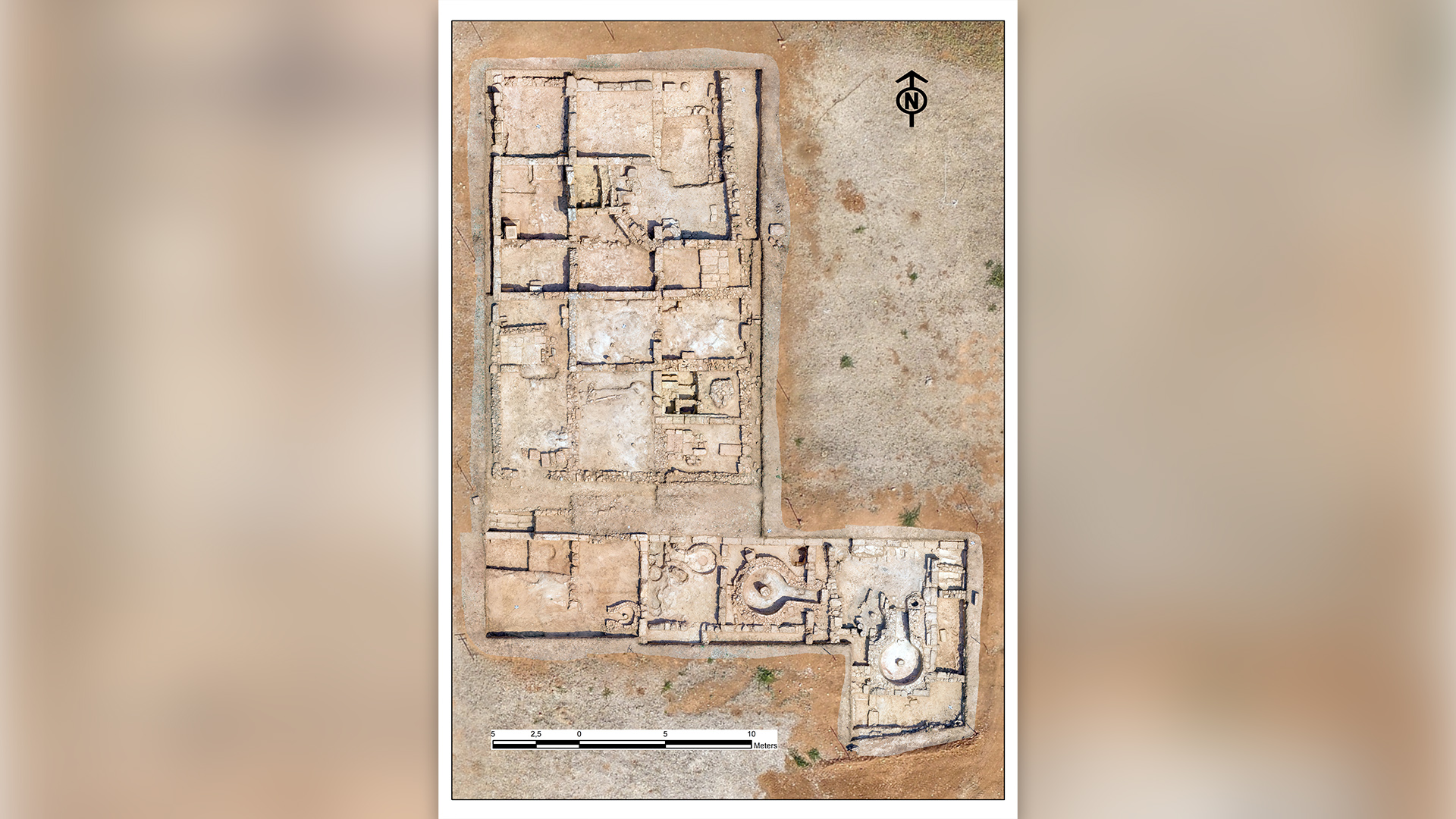
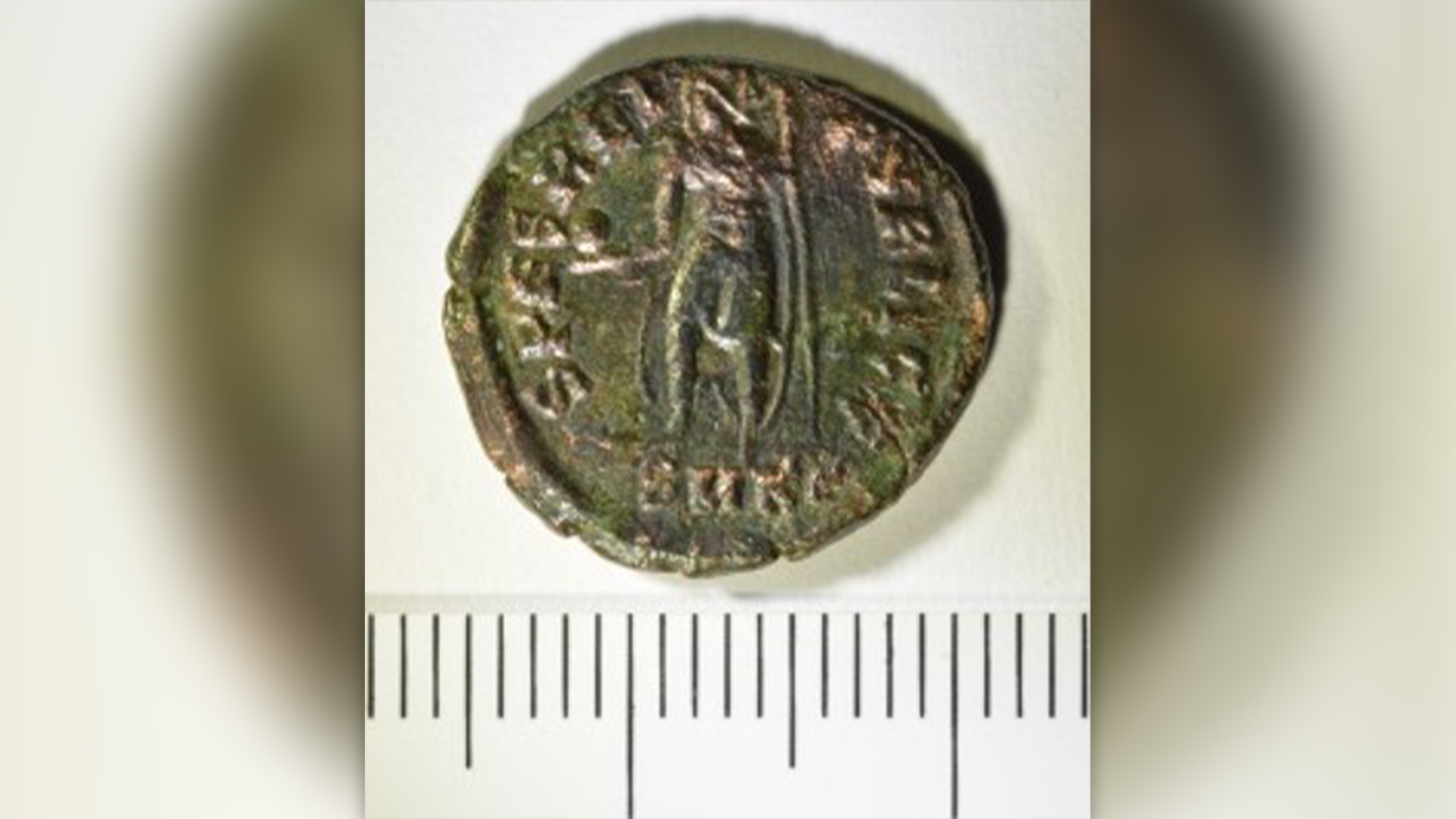
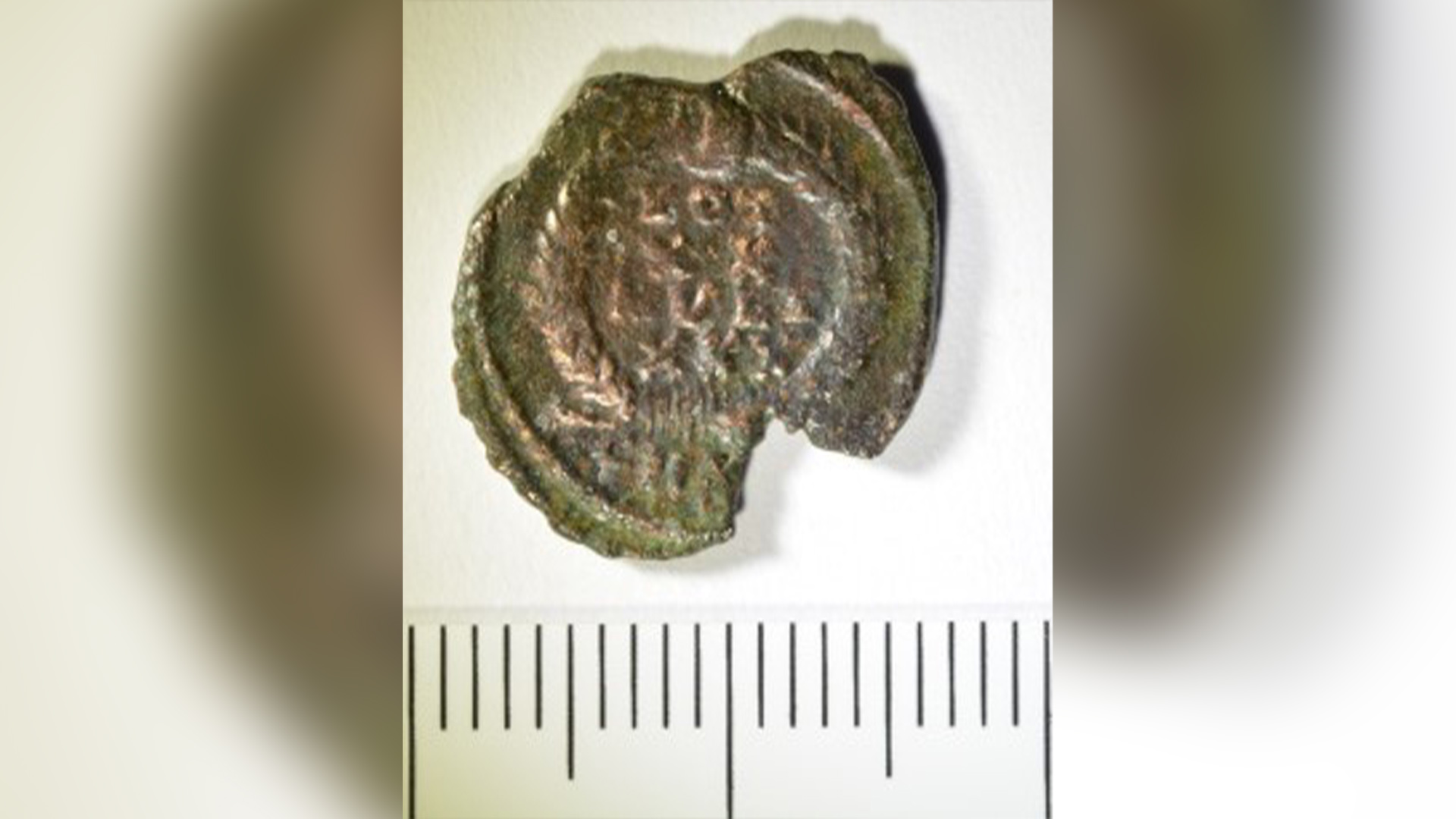
Destructive event
The wine shop appears to have suffered a "sudden event" that resulted in its destruction and abandonment, Gallimore said. The 60 bronze coins found in the floor are from the shop's final moments.
Sign up for the Live Science daily newsletter now
Get the world’s most fascinating discoveries delivered straight to your inbox.
"The coins were all found on the floor of the [shop], scattered across the space," Gallimore said. "This seems to indicate that they were being kept together as some type of group, whether in a ceramic vessel or some type of bag. When the [shop] was destroyed, that container appears to have fallen to the floor and scattered the coins.
"We're not sure what type of event this was — possibly an earthquake, or possibly a roof collapse due to environmental conditions, like too much rainfall," he added. After the destruction people dumped in debris and sediment "but no effort was made to recover anything from within it."
The complex that the shop is part of appears to have been abandoned in the early fifth century, possibly at the time of the event.

Owen Jarus is a regular contributor to Live Science who writes about archaeology and humans' past. He has also written for The Independent (UK), The Canadian Press (CP) and The Associated Press (AP), among others. Owen has a bachelor of arts degree from the University of Toronto and a journalism degree from Ryerson University.









